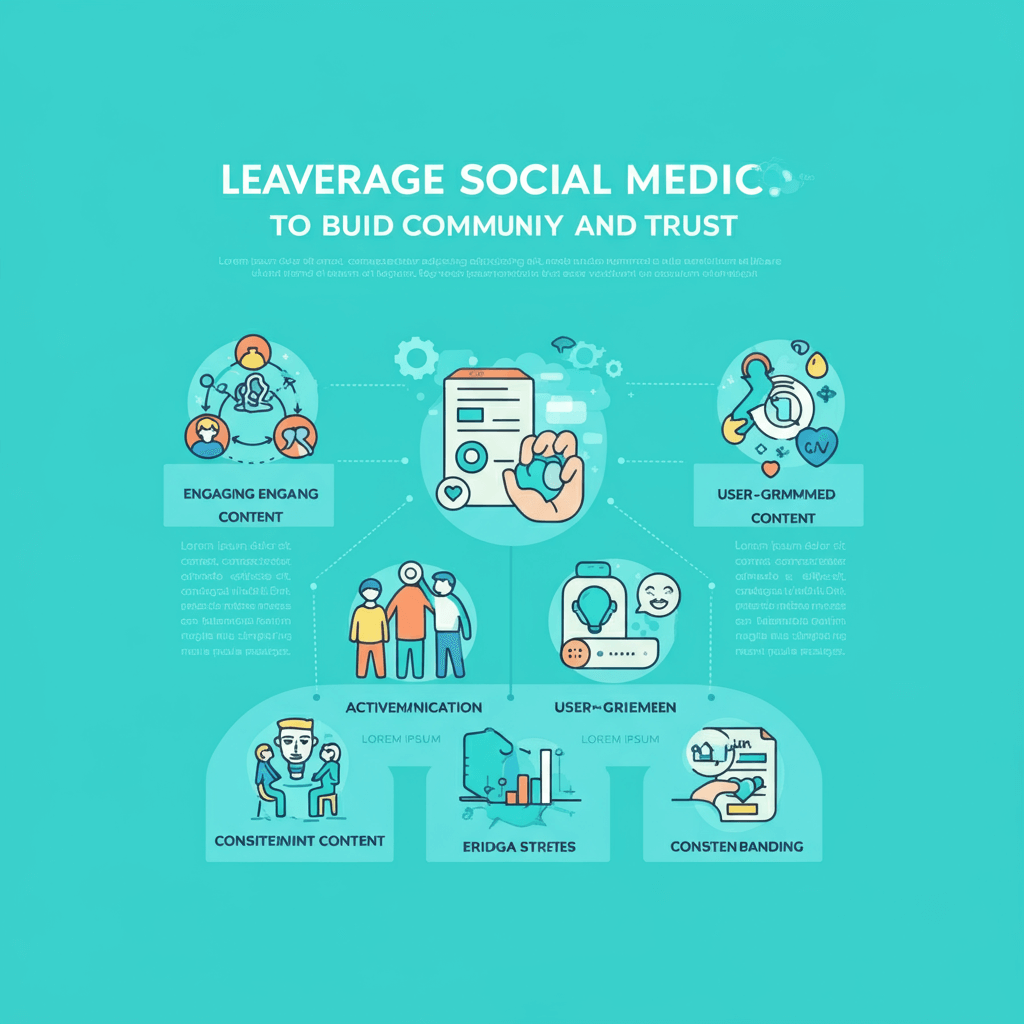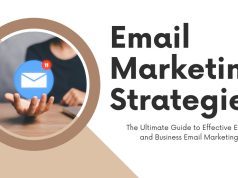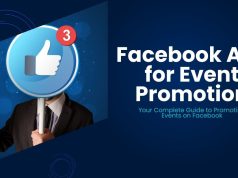Event venues can boost bookings by showcasing experiences, not just spaces. Strong visuals, local SEO, partnerships, content marketing, social media, and great customer service help build trust and keep calendars full.
Event venues face a unique challenge: attracting event planners and hosts while showcasing spaces that customers can’t fully experience until they book. Whether you manage a wedding hall, conference center, or outdoor pavilion, effective marketing can transform empty calendars into fully booked months ahead.
The event industry generates over $1 trillion globally, yet many venue owners struggle to capture their fair share. The key lies in understanding that you’re not just selling a space—you’re selling an experience, a vision, and peace of mind to event planners who need everything to go perfectly.
This guide reveals ten actionable strategies that successful venues use to attract bookings, build relationships with event planners, and establish themselves as the go-to choice in their market. From digital marketing tactics to partnership opportunities, these approaches will help you maximize your venue’s potential and create a sustainable stream of bookings.
Build a Visual-First Website That Converts
Your website serves as the first impression for most potential clients. Event planners need to envision their gatherings in your space, which means high-quality photography and virtual tours are non-negotiable.
Professional photography should capture your venue from multiple angles, during different times of day, and set up for various event types. Include wide shots that show the full space, detail shots of unique features, and lifestyle images with real events when possible. Many venues make the mistake of showing only empty rooms, but planners want to see how the space looks when filled with people and décor.
Consider adding a virtual tour or 360-degree photos that allow visitors to explore independently. This technology has become more affordable and accessible, and it significantly reduces the number of initial site visits needed before booking decisions.
Your website should also include practical information upfront: capacity limits, layout options, available amenities, and clear pricing information. Event planners often research multiple venues simultaneously, so making key details easy to find keeps you in the running.

Master Search Engine Optimization for Local Discovery
Event planners typically search for venues within a specific geographic area. This makes local SEO crucial for venue marketing success.
Start by optimizing your Google Business Profile with accurate information, professional photos, and regular updates. Encourage satisfied clients to leave detailed reviews that mention specific event types and positive experiences. Respond to all reviews professionally, as this interaction demonstrates your commitment to customer service.
Create location-based content on your website. Write blog posts about local wedding trends, corporate event ideas, or seasonal celebrations that work well in your area. This type of content supports long-term visibility and aligns with guidance found in the ultimate SEO guide for event marketing.
Build local citations by ensuring your venue information appears consistently across online directories, wedding websites, and event planning platforms. Inconsistent information across platforms can hurt your local search rankings.
Develop Strategic Partnerships with Event Professionals
Event planners, caterers, photographers, and decorators form a tight-knit professional network. Building relationships within this community can generate consistent referrals and collaborative opportunities.
Reach out to established event planners in your area and offer to host site visits or networking events. Many planners maintain lists of preferred venues and regularly recommend spaces they trust to their clients.
Consider partnering with complementary service providers to create package deals. A venue-catering-photography bundle simplifies planning for clients while providing added value. These partnerships also expand your marketing reach, as partners often promote collaborative offerings to their own client bases.
Wedding industry partnerships deserve special attention, as couples often choose venues first, then select other vendors. Learn more about partnership marketing with video analytics to strengthen these collaborations.
Create Compelling Content That Showcases Your Space
Content marketing allows you to demonstrate your expertise while showcasing your venue’s capabilities. This strategy works particularly well for event marketing because visual content performs strongly across social platforms and supports event marketing success over time.
Share real events through case studies and photo galleries. With client permission, document celebrations from setup through breakdown, highlighting how your venue contributed to the event’s success. Include details about challenges overcome, unique features utilized, and positive outcomes achieved.
Educational content positions your venue as a trusted resource. Create guides about choosing the right venue size, planning seasonal events, or maximizing small spaces. This content attracts planners in the research phase and establishes your credibility.
Behind-the-scenes content humanizes your venue and builds trust. Share staff preparation processes, maintenance routines, or facility improvements. This transparency reassures potential clients about your professionalism and attention to detail.
Leverage Social Media to Build Community and Trust
Social media platforms offer powerful tools for venue marketing, particularly Instagram and Facebook, where visual content drives engagement.
Instagram works especially well for showcasing events in progress and finished setups. Use Stories to share real-time updates during events, and create Highlights that organize content by event type or season. This gives potential clients easy access to relevant inspiration.
Facebook’s event features allow you to promote open houses, showcase events, and build community around your venue. Create a business page that regularly shares client events (with permission), venue updates, and industry insights.
LinkedIn can be valuable for corporate event marketing. Share content about successful business gatherings, industry trends, and professional development opportunities that your venue can accommodate.
Encourage clients to tag your venue in their event posts and share user-generated content when appropriate. This authentic content often performs better than branded posts and provides social proof from real customers.

Implement Email Marketing for Relationship Building
Email marketing maintains relationships with past clients and nurtures potential customers through longer sales cycles. Event planning often involves months of preparation, making email a core component of event email marketing strategies.
Segment your email list by event type and planning timeline. A couple planning a wedding two years out has different needs than a corporate planner booking quarterly meetings. Tailored content performs significantly better than generic newsletters.
Share seasonal inspiration and planning tips relevant to your venue’s strengths. If your outdoor space works beautifully for spring weddings, send garden party ideas and seasonal décor suggestions to engaged couples during winter months.
Follow up with past clients around anniversary dates or seasonal planning times. A simple “thinking of your beautiful wedding” message with photos from their event can lead to referrals or repeat bookings for other celebrations.
Offer Virtual Tours and Interactive Experiences

Technology has transformed how event planners evaluate venues, especially following increased remote planning trends. Virtual experiences can significantly expand your market reach beyond local clients.
Live virtual tours via video calls allow you to showcase your space while answering questions in real-time. This personal touch often proves more effective than pre-recorded tours because you can customize the experience based on specific client needs.
Interactive floor plan tools help planners visualize different layout options. Some venues use simple software that allows clients to experiment with table arrangements and setup configurations online.
Use Pricing Transparency as a Competitive Advantage
Many venues lose bookings because pricing feels unclear or intimidating. While full pricing disclosure isn’t always feasible, transparency builds trust and filters out unqualified leads early.
Your marketing should explain what pricing includes, what affects cost variations, and how clients can estimate their budget. Even starting ranges or sample packages help planners determine whether your venue fits their expectations.
Clear explanations reduce back-and-forth communication and position your venue as honest and professional. Planners appreciate venues that respect their time and budget constraints.
Pricing transparency also reduces friction in the sales process. Clients who inquire after reviewing clear information are often more serious and easier to convert, improving overall booking efficiency.
Consider hosting virtual open houses or Facebook Live events that showcase your venue during different setups. These events can attract multiple potential clients simultaneously while demonstrating your space’s versatility.
Focus on Customer Service Excellence
Outstanding service creates lasting impressions that generate referrals and positive reviews. In the event industry, word-of-mouth recommendations carry significant weight.
Respond to inquiries quickly and professionally. Event planners often contact multiple venues, so prompt responses keep you competitive. Provide detailed information upfront to streamline the decision-making process.
Be flexible when possible and offer solutions to challenges. If a client’s dream date is unavailable, suggest alternative dates or modified packages. This problem-solving approach demonstrates your commitment to client success.
Follow through on promises and maintain professional communication throughout the planning process. Many venue bookings happen months in advance, so consistent contact reassures clients about their choice.

Utilize Paid Advertising Strategically
Paid advertising can effectively target event planners and individuals planning celebrations, but success requires strategic approach and careful budget management.
Google Ads work well for capturing high-intent searches like “wedding venues near me” or “corporate event spaces.” Focus on local keywords and create compelling ad copy that highlights your unique features.
Facebook and Instagram ads allow precise targeting based on interests, behaviors, and demographics. You can target recently engaged individuals, people interested in event planning, or businesses likely to host corporate gatherings.
Consider advertising on wedding and event planning websites where your ideal clients browse regularly. These platforms often offer targeted advertising options based on event type, budget, and location.
Measure Results and Optimize Continuously
Successful venue marketing requires ongoing analysis and adjustment based on performance data. Track both marketing metrics and booking outcomes to understand which strategies generate the best return on investment.
Monitor website analytics to understand how visitors find and interact with your site. High bounce rates might indicate poor mobile optimization or unclear messaging, while low conversion rates could suggest pricing transparency issues or complicated booking processes.
Track the source of your bookings to understand which marketing channels prove most effective. This data helps you allocate marketing budgets and time more efficiently.
Survey clients about how they discovered your venue and what factors influenced their decision. This feedback often reveals opportunities for improvement or successful strategies worth expanding.
Transform Your Marketing Into Bookings
Event venue marketing success comes from consistent execution across multiple strategies rather than relying on any single approach. The venues that consistently book events combine beautiful spaces with professional marketing that makes those spaces easy to discover and book.
Start by auditing your current marketing efforts against these ten strategies. Identify the biggest gaps and tackle them systematically rather than trying to implement everything simultaneously. Focus on creating an outstanding online presence first, then build relationships and expand your reach through partnerships and advertising.
Remember that event marketing is ultimately about building trust and helping planners envision successful events in your space. Every marketing touchpoint should reinforce your professionalism, showcase your venue’s capabilities, and make the booking process as smooth as possible.
The event industry rewards venues that consistently deliver excellent experiences and market themselves effectively. By implementing these proven strategies and adapting them to your venue’s unique strengths, you can build a sustainable marketing system that keeps your calendar full and your business thriving.
Frequently Asked Questions (FAQ)
How far in advance should event venues market their availability?
Event venues should market availability at least 12 to 24 months in advance, especially for weddings and large corporate events. Many planners secure venues early to lock in dates, and consistent long-term visibility ensures your venue stays top of mind throughout the planning cycle.
What type of content attracts the most venue inquiries?
Real event showcases, behind-the-scenes content, and problem-solving narratives attract the highest-quality inquiries. Planners want to see how events actually function in your space, not just staged photography.
Is social media more effective than paid advertising for venue marketing?
Both play different roles. Social media builds trust, inspiration, and long-term brand awareness, while paid advertising captures high-intent leads actively searching for venues. The strongest strategies use both together.
How can small venues compete with larger, more established spaces?
Smaller venues can compete by emphasizing personalized service, flexibility, and unique experiences. Many planners prefer venues that feel attentive and adaptable rather than large, impersonal operations.
Should venues allow outside vendors or require preferred partners?
Allowing outside vendors increases flexibility and appeal, while preferred vendor lists help maintain quality. Many successful venues balance both by recommending trusted partners without making them mandatory.
How important are virtual tours for event bookings?
Virtual tours are increasingly important, especially for destination events or planners working remotely. They reduce initial hesitation and speed up decision-making by helping clients visualize the space without immediate site visits.









